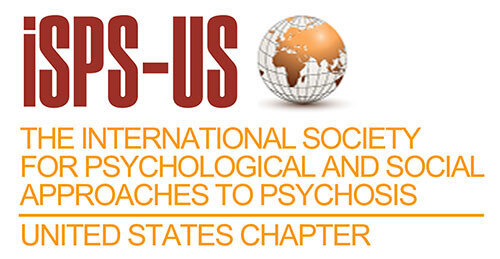
We're thrilled to announce the first of our two keynote speakers for the upcoming ISPS-US 2024 Annual Conference "New Beginnings: Reimagining Psychosis Services and Systems in the US."
Please join us in welcoming Professor Craig Steel, a distinguished clinical psychologist and researcher from the UK whose work has significantly advanced the development and evaluation of psychological treatments for psychosis. His research focuses on creating models to comprehend symptoms in the context of trauma, including integrating innovative approaches like the voice dialogue method for distressing voice hearing experiences. Full bio below.
In addition to delivering a keynote address during the conference, Craig will also be leading a full-day pre-conference workshop on November 1st. This workshop promises to provide attendees with invaluable insights and practical strategies based on Craig's extensive expertise. Registration and more details coming soon.
As we eagerly anticipate the conference, we would like to take this opportunity to remind you that the deadline for proposal submissions is fast approaching - June 3rd. Don't miss your chance to contribute to this transformative event!
Dates: November 1-3, 2024
Location: Pittsburgh, PA and hybrid online
Venue: Pre-conference event on November 1st at the University of Pittsburgh; full conference November 2nd-3rd at Duquesne University.
We look forward to welcoming you to Pittsburgh!
Craig Steel Bio
Craig completed a PhD at King’s College London (1998) and qualified as a clinical psychologist (2000) at Royal Holloway, University of London. His clinical and research work has focused on the development and evaluation of psychological treatments for psychosis. He has a particular interest in developing models than enable us to ‘make sense’ of psychotic symptoms within the context of the reaction to traumatic life events. Current research includes developing a ‘voice dialogue’ approach to working with distressing voice hearing experiences, working with a London refugee service to help evaluate trauma interventions and working with colleagues across Europe and the UK to evaluate an imagery-based intervention aimed at helping people diagnosed with bipolar disorder better regulate their mood.
He is a member of the Scientific Committee of the British Association of Behavioural and Cognitive Psychotherapy and Associate Editor to the Journal Behavioural and Cognitive Psychotherapy. He is a Chartered Clinical Psychologist, a member of the Division of Clinical Psychology and a member of the Health and Care Professionals Council. He is also an accredited Cognitive Behavioural Therapist.
